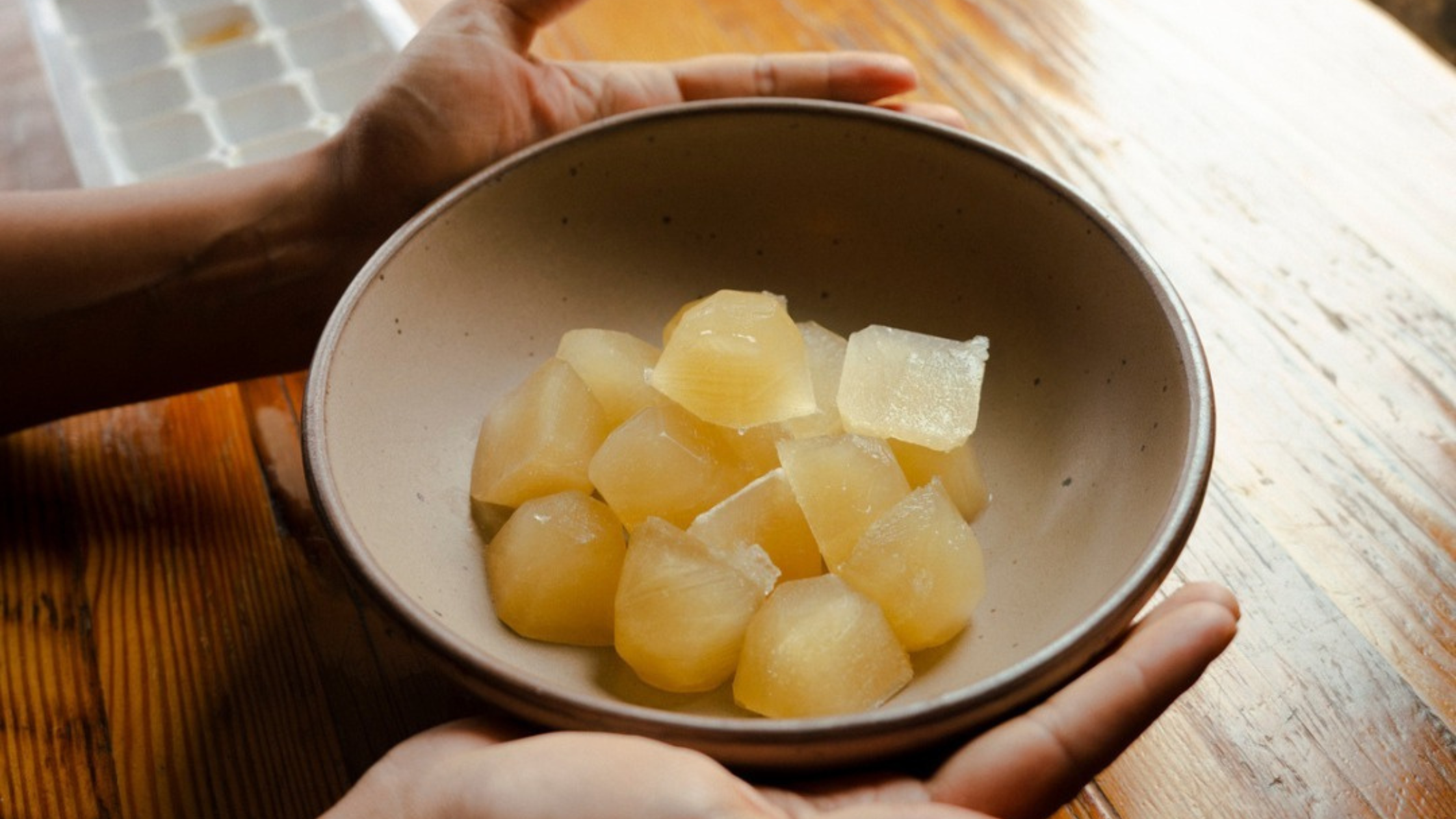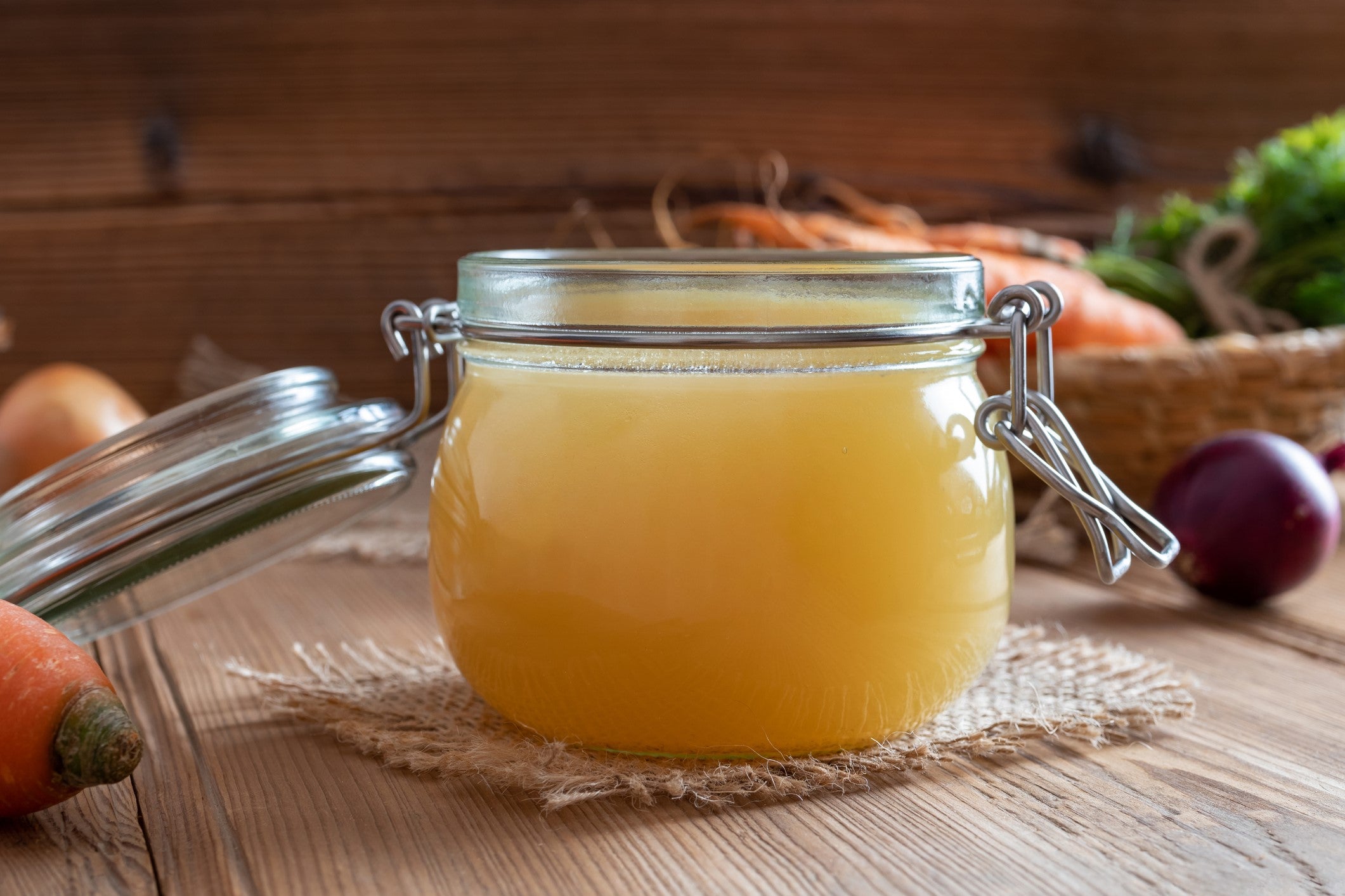The Relevance of Healthy Food: Why Bone Broth Is a Terrific Choice for Infants
Bone broth stands out as a nutrient-dense option, offering important vitamins and minerals that support development and advancement. What are the finest methods to introduce bone broth to your little one?
Nutritional Benefits of Bone Broth for Newborns
When you present bone broth to your infant's diet, you're providing a nutrient-dense food that supplies many health and wellness advantages. Packed with crucial minerals and vitamins, bone broth consists of calcium, magnesium, and phosphorus, which sustain your child's growing bones. It's likewise rich in collagen, aiding in the advancement of healthy and balanced skin, joints, and connective tissues.
Additionally, bone broth is a superb resource of amino acids like glycine and proline, which play a considerable role in overall growth and muscle development. These nutrients help promote a solid body immune system, setting a strong foundation for your baby's wellness.
Additionally, bone broth is very easy to digest, making it a mild choice for your little one. By integrating this wholesome food into their meals, you're guaranteeing they receive crucial nutrients needed for their overall wellness. Go in advance and make bone broth a staple in your infant's diet plan!
Exactly How Bone Broth Sustains Digestion
Bone broth is loaded with vital nutrients that can actually benefit your baby's food digestion. It advertises gut health and assists with nutrient absorption, making it a great enhancement to their diet regimen. By including bone broth, you're setting the phase for a much healthier digestive system.
Nutrient-Rich Make-up
One of the most nutrient-rich foods you can introduce to your baby's diet regimen is bone broth, which is packed with crucial minerals and amino acids that support healthy digestion. Rich in collagen, bone broth helps reinforce your infant's digestive tract lining, making it easier for their body to take in nutrients. By integrating bone broth into your baby's meals, you're offering them a wholesome food that nurtures their digestive system properly.
Advertises Intestine Wellness
As you present bone broth right into your infant's diet, you'll find it not just nurtures however likewise promotes intestine wellness successfully. Rich in gelatin, bone broth helps calm the gastrointestinal tract, reducing swelling and sustaining a healthy gut lining. This is crucial for babies, as a well balanced gut setting lays the foundation for total health. Additionally, the amino acids discovered in bone broth, such as glycine, aid in food digestion and can help prevent usual tummy problems. By integrating this nourishing fluid, you're providing your baby with crucial nutrients that contribute to a successful digestive system. Ultimately, a healthy and balanced intestine can influence whatever from resistance to state of mind, making bone broth an excellent selection for your kid.
Aids Nutrient Absorption
Introducing bone broth not just supports intestine health and wellness however likewise plays a substantial role in helping vitamins and mineral absorption. When you offer your baby bone broth, you're giving a rich resource of minerals and amino acids that improve their digestion processes. The gelatin in bone broth helps to soothe the intestine lining, enhancing its capacity to soak up necessary nutrients.
Strengthening the Body Immune System With Bone Broth

By integrating bone broth into your child's diet plan, you're providing a natural source of nutrition that advertises health. Consider making bone broth a staple in your baby's dishes, as it can play a crucial role in their immune health and wellness and development.
Easy Ways to Integrate Bone Broth Into Infant's Diet
Including bone broth right into your infant's diet regimen can be simple and satisfying. Beginning by blending a percentage of bone broth into pureed veggies or fruits. This includes flavor and nutrients without overwhelming your youngster. You can also use bone broth as a base for soups or stews that you prepare for the family, ensuring your baby obtains a preference of scrumptious, well balanced meals.
If your baby enjoys grains, take into consideration cooking rice or quinoa in bone broth rather of water for extra nourishment. These methods will help your infant gain the advantages of bone broth effortlessly!
Homemade vs. Store-Bought Bone Broth: What to Choose
Which is much better for your child: homemade or store-bought bone broth? Home made bone broth uses you complete control over the components. You can select high-grade bones, natural veggies, and herbs, guaranteeing your baby gets one of the More Help most nutrients without additives or chemicals. Plus, making it in the house can be a gratifying experience, permitting you to bond with your baby while preparing wholesome food.
On the other hand, store-bought options are hassle-free and save you time. However, they frequently contain chemicals and might not match the depth of flavor and nutrition you obtain from homemade broth. If you select store-bought, search for brand names that are natural and devoid of additives.
Inevitably, if you have the moment and resources, homemade bone broth is the remarkable selection for your baby's health and wellness. If you're short promptly, choose a high quality store-bought choice as a backup.
Age-Appropriate Bone Broth Serving Suggestions
As your baby grows, it is essential to customize bone broth offering recommendations to their developing stage. For infants around 6 months, start with a few spoonfuls of watered down bone broth. Mix it with water or breast milk to make it less complicated for them to digest. As they come to be familiar with tastes, you can slowly present thicker broth by minimizing the dilution.
By the time your little one is around a year old, consider providing bone broth as a standalone beverage or mixing it right into soups and stews. Just make certain to keep the broth reduced in salt.
Other Healthy Foods to Couple With Bone Broth for Babies
When you're aiming to improve the nutritional worth of bone broth for your infant, consider combining it with nutrient-dense veggies like carrots and spinach. Entire grain options, such as quinoa or brown rice, can likewise add structure and fiber. In addition, integrating healthy and balanced protein sources like shredded chicken or lentils will complete the dish nicely.

Nutrient-Dense Vegetables
Nutrient-dense veggies are a superb enhancement to bone broth for babies, enhancing both taste and nourishment. Including veggies like carrots, spinach, and pleasant potatoes can improve the over at this website minerals and vitamin content of your broth. Carrots provide beta-carotene for healthy and balanced vision, while spinach is loaded with iron and calcium, vital for development. Wonderful potatoes add all-natural sweetness and are abundant in fiber, helping digestion.
You can conveniently mix these vegetables into the broth or offer them as soft, cooked items along with it. This not just presents new flavors but likewise encourages your child to take pleasure in a variety of nutrients. By coupling nutrient-dense vegetables with bone broth, you're laying the structure for a healthy diet right from the beginning.
Entire Grain Options

Healthy And Balanced Healthy Protein Resources
Bone broth sets wonderfully with different healthy protein sources, better improving your baby's diet plan. Try adding soft, cooked lentils; they're nutrient-dense and packed with protein. You can additionally blend in shredded chicken or turkey, which are simple for your kid to absorb. If you're trying to find plant-based choices, consider mashed tofu or pureed chickpeas-- both provide superb healthy protein without overwhelming flavors. Eggs, when presented safely, are another wonderful selection; they're versatile and filled with nutrients. Ultimately, assimilating some well-cooked quinoa can include a great texture and added healthy protein. By combining these healthy and balanced protein sources with bone broth, you're giving your infant a well balanced, beneficial meal that sustains their development and development.
Often Asked Questions
Can Bone Broth Reason Allergies in Newborns?
Yes, bone broth can cause allergic responses in babies, specifically if they're sensitive to particular components. Constantly consult your pediatrician before presenting brand-new foods and monitor for any type of indicators of allergies after feeding.
Exactly How Should Bone Broth Be Saved for Infants?
You ought to keep bone broth in impermeable containers, either in the refrigerator for as much as a week or in the freezer for approximately 3 months. chicken bone broth. Always thaw it appropriately prior to offering to your infant
Is It Safe to Offer Bone Broth to Premature Babies?
It's vital to consult your pediatrician before introducing bone broth to premature infants. They'll analyze your baby's particular wellness demands and ensure it's secure, considering their one-of-a-kind dietary needs and developmental stage. Always prioritize professional advice.
What Are the Signs of Intolerance to Bone Broth in Babies?
When presenting bone broth, expect indicators like fussiness, breakout, diarrhea, or vomiting. If your child reveals any one of these responses, it's ideal to consult a doctor before continuing to offer it.
Can Bone Broth Be Utilized as a Meal Replacement for Infants?
No, you shouldn't utilize bone broth as a dish replacement for babies. It does not have essential nutrients required for special info their growth. Rather, integrate it right into their diet regimen along with balanced meals for included nourishment and flavor.